Soothing hands behind SNEHA’s suicide prevention mission
Dr Lakshmi Vijayakumar brings back the distressed from the brink of death through her NGO that offers timely psychological support, campaigns to decriminalise suicides, and implements pesticide locker rooms to restrict farmer suicides
By Rohini Murugan
| Posted on May 8, 2025
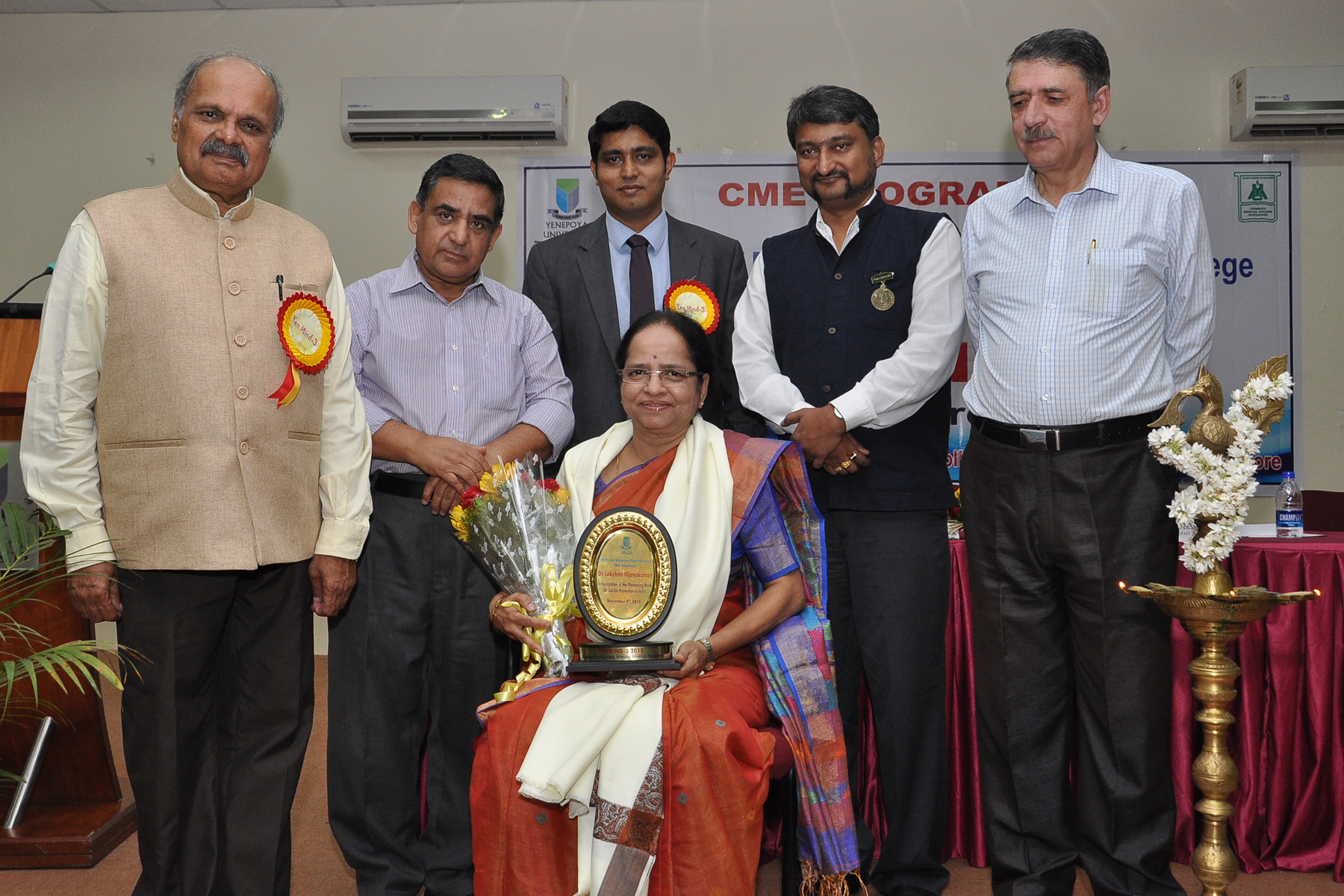
“I still have my slot as a volunteer scheduled for Thursdays,” smiles Dr Lakshmi Vijayakumar (70), as she explains the functioning of SNEHA, a suicide prevention NGO fully powered by volunteers. She founded the organisation in Chennai, 39 years ago, along with her husband, Dr. Vijayakumar, to offer free psychological support to those in need.
Barring the 2015 Chennai floods and a couple of weeks during the COVID-19 pandemic, SNEHA has had its doors open for 24 hours every single day of the year since it started functioning on April 13, 1986.
“Everyone expected me to join MD General Medicine, because when you stand first in the state, it is mandatory that you take it,” she chuckles as she recounts her initial foray into psychiatry. She describes meeting patients during her house surgency, not as people but as a list of symptoms.
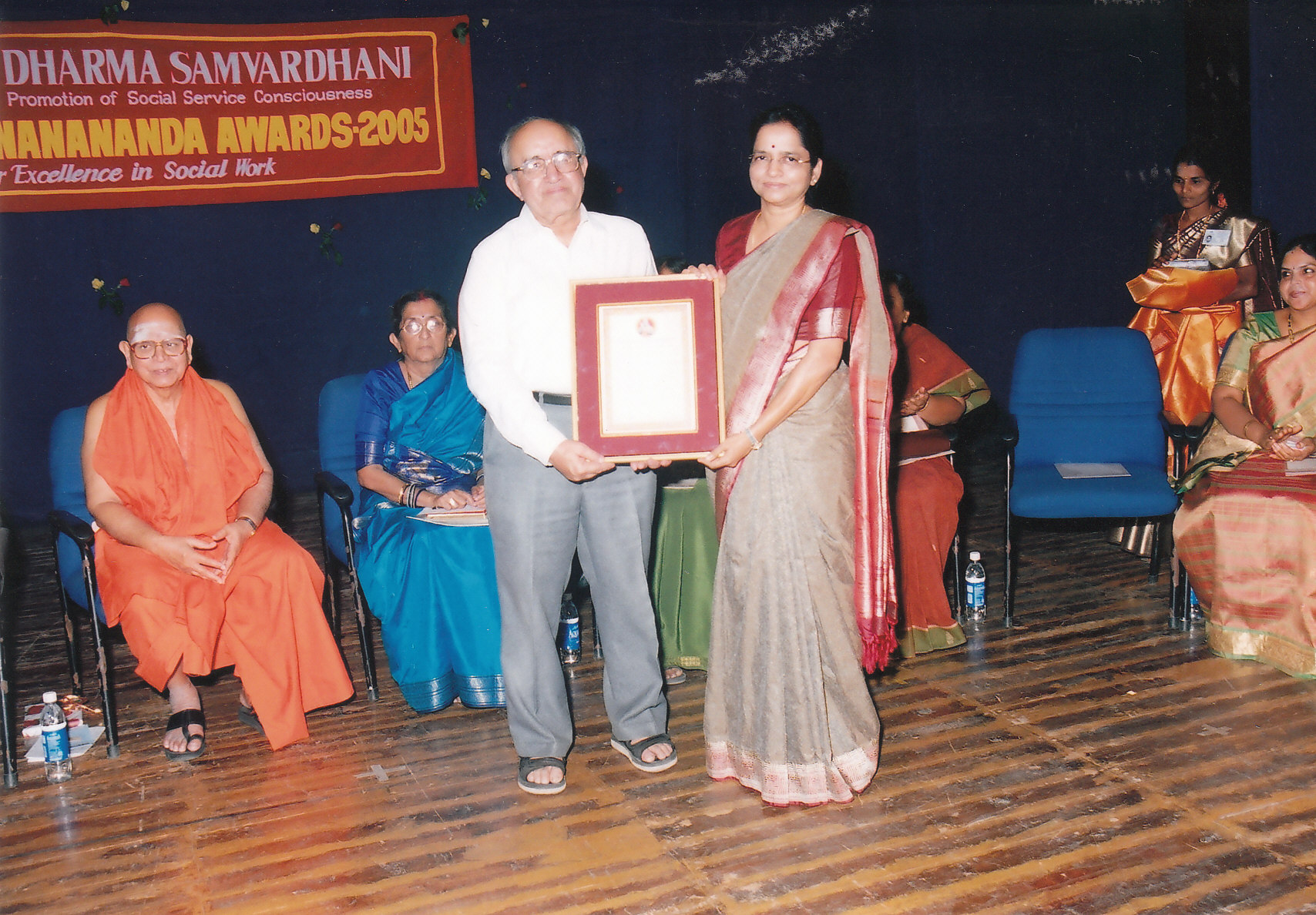
An early experience with one of her patients profoundly shaped Lakshmi’s path, steering her toward suicide prevention
“Liver failure, urinary infection, pulmonary tuberculosis — I had all the words ready in my head. But I had no clue as to where they were from or what had brought them here. That made me stop and think. Is this what I want to do in medicine?”
So she decided to join psychiatry instead. A decision, so uncommon for a state topper, that the chief of the hospital had to call her parents to ensure that her decision was not motivated by an unduly heartbreak in a romantic relationship.
She would go on to earn a post-graduate diploma in psychological medicine from Thanjavur Medical College, following it up with a PhD in the psychiatry of suicide from the Tamil Nadu Dr. M.G.R. Medical University, Chennai.
An experience with one of her patients profoundly shaped Dr Lakshmi’s path, steering her toward suicide prevention. A few months into her programme, she treated a patient who had consumed cyanide. To her surprise, several days after his recovery, the same patient returned to thank her. He expressed gratitude for saving his life, sharing that things had turned around for the better.
That was when she realised that people who attempt suicide often do not persist if they fail in their first attempt. It meant that interventions like restricting access to means of suicide can prevent suicide attempts altogether. “Here was something that could be treated. And you can really save lives. So, why is anybody doing anything about it?”
Lakshmi had just started her practice as a psychiatrist when she started working on suicide prevention. It became not just her passion, but also her mission — a calling that would eventually define her career.
However, there was very little research to fall back on. The textbooks did not reflect the true reality of what she was experiencing in her clinic. The textbooks proclaimed that an elderly man living alone was the highest risk factor for suicide, whereas young, married women with financial and marital issues crowded her clinic, pointing to a different tale.
Lakshmi discovered that the textbooks were largely based on research done on Western populations. They were painting a Western portrait of a problem that was uniquely cultural. She went to Vienna to present her findings at the International Association for Suicide Prevention Conference in 1985.
A chance conversation with Vanda Scott at the conference marked a pivotal point of her career. Scott told her about Samaritans, a UK-based volunteer organisation that worked on suicide prevention. The idea resonated deeply with Lakshmi.
“I liked the concept of ordinary people being there to support other people in distress. The way I looked at it, I thought there was no other way. With the number of suicides happening in India, there was no way we were going to have a state mental health force to look at it. So, I thought we need to have the society involved and work on it.”
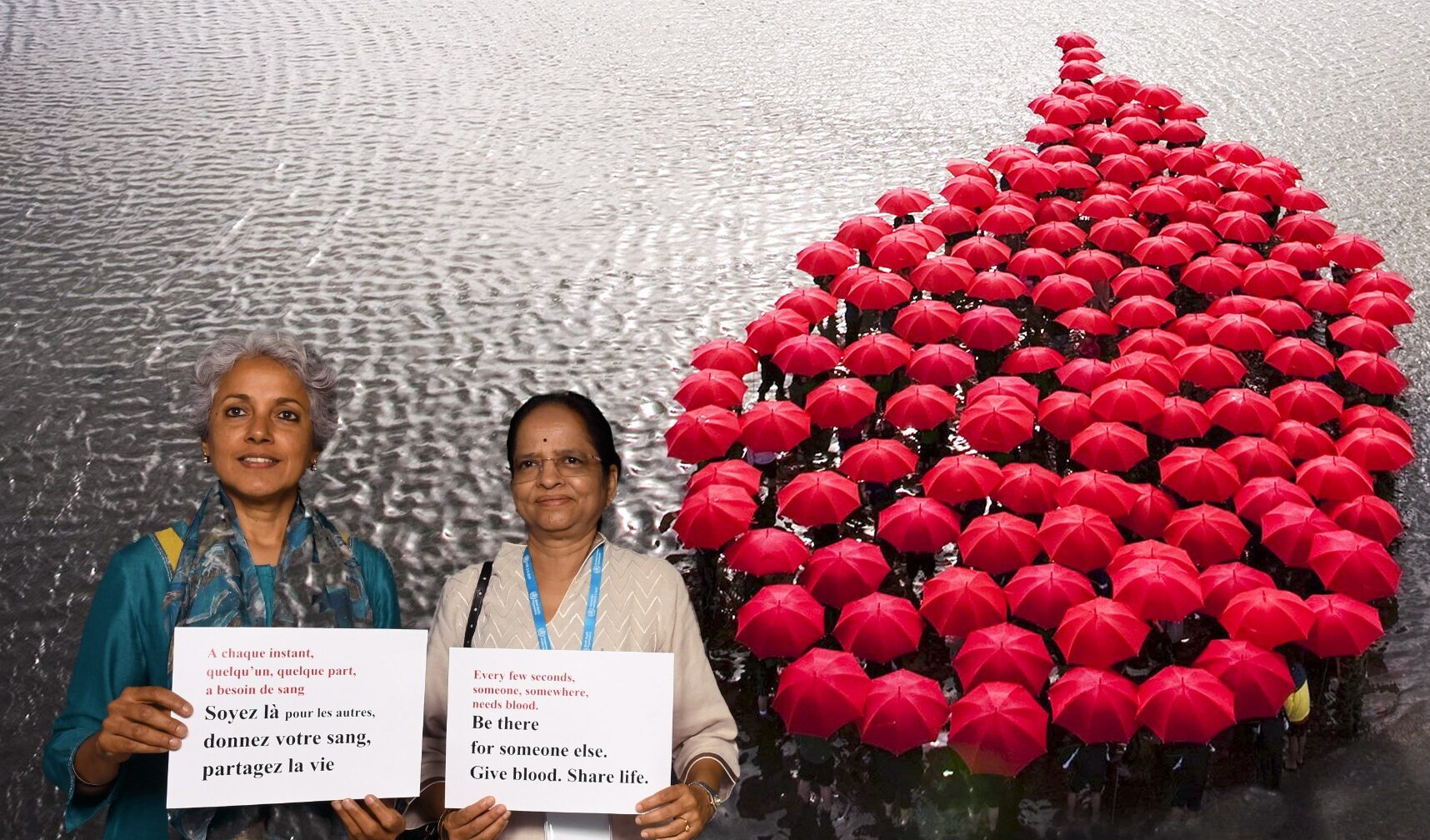
Inspired by Samaritans, a UK-based volunteer organisation that worked on suicide prevention, Lakshmi envisioned establishing her own community-powered organisation
Inspired, Lakshmi returned to her hometown with a clear vision: to establish her own community-powered organisation dedicated to suicide prevention. Questions abounded her.
‘Madras is a very conservative place, do you think people will come and talk to you about suicide?’ ‘Do you think you can prevent suicide by just talking to people and giving emotional support?’
Today, SNEHA can best be described as a collective and continued effort of a small band of volunteers who work around the clock, talking to distressed people, providing them with anonymity and emotional support to face their problems in a non-judgmental space.
“Over the years, we have received more than 1.5 million calls. Earlier, it was mostly visits. Then, it became telephone (calls). And then a lot of youngsters wanted to do email and then after email, now the younger population think email is for old people and so we started a chat service last year,” beams Lakshmi, as she recollects the growth of SNEHA over the years.
Lakshmi’s tenacity and passion towards providing mental health support for the public echoes in the words of her colleagues. “Dr. Lakshmi’s ability to listen and understand people is truly remarkable. She is not just passionate about her research but does it with a humble heart. I admire her commitment to changing the stigma around suicide and mental health. At SNEHA, she has the unique ability to make all the volunteers feel valued and supported,” gushes Mr. Anand Srikanth, the director of SNEHA.
One of the major milestones in her career happened when she took a dive into policymaking and helped formulate two ground-breaking legislations
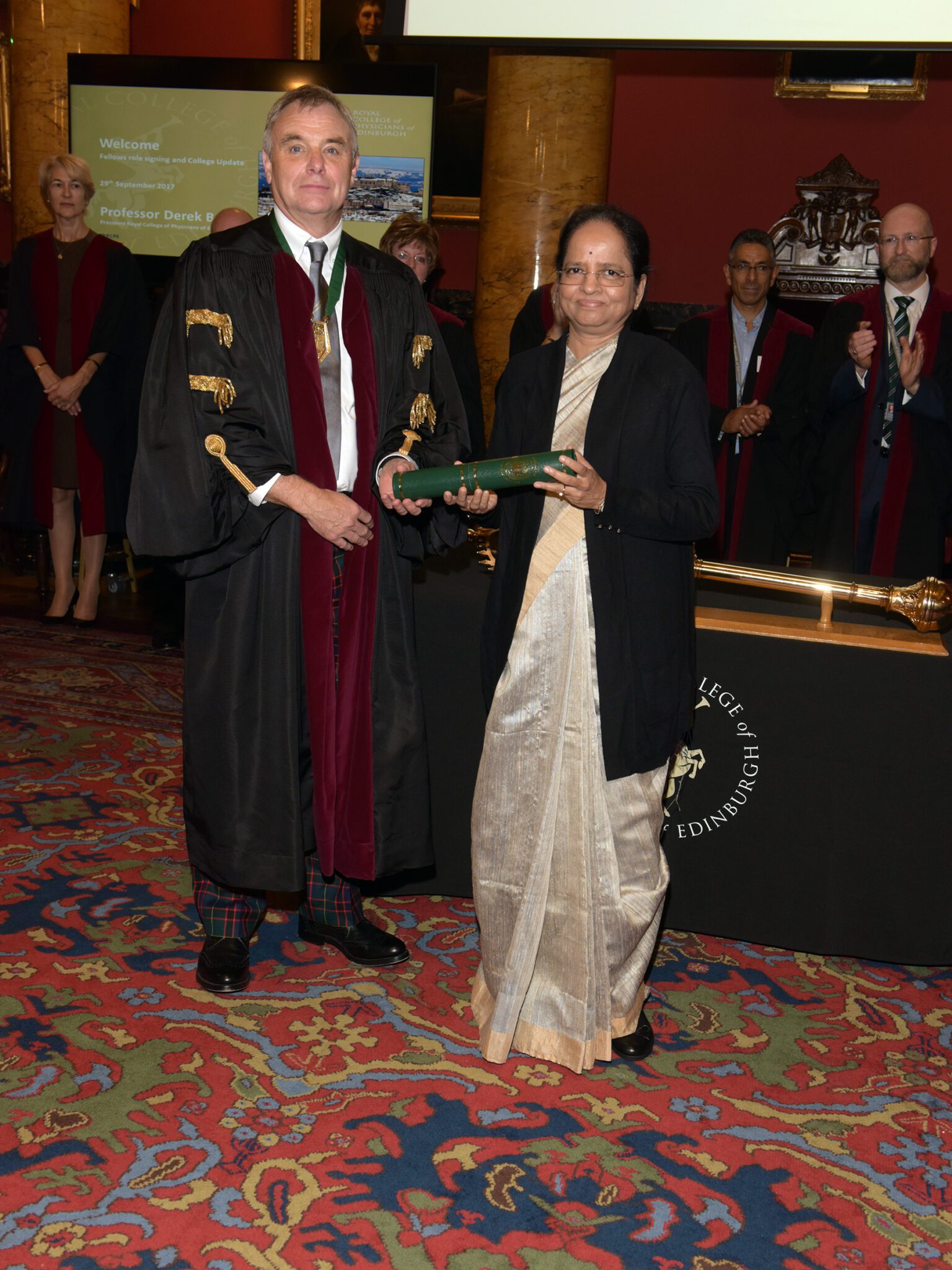
For her invaluable contributions to the field of mental health research, Lakshmi was awarded the Honorary Fellowship of Royal College of Psychiatrists in 2009 and the Fellowship of the Royal College of Physicians in 2017 in Edinburgh, UK
The first emerged from a troubling trend she observed at SNEHA: a dramatic surge in calls — three times the usual volume —around the time the board exam results were announced. She found out that the distressed students fell into one of two groups —those who expected to score in the 90% but scored 70%, and those who failed by just a few marks.
Determined to change this pattern, Lakshmi collaborated with the media to raise awareness and met with officials from the Government of Tamil Nadu to discuss actionable solutions. At her suggestion, in 2014, Tamil Nadu became the first state to offer students a second chance to retake their exams. The impact of this legislation was immediate. The student suicide rates in the state plummeted, from 400 a year in 2004 to just 100 in 2022 — a testament to the effectiveness of the measures spearheaded by Lakshmi and her team. Today, about 68 volunteers field their helplines with a minimum of two or three available at any point in time.
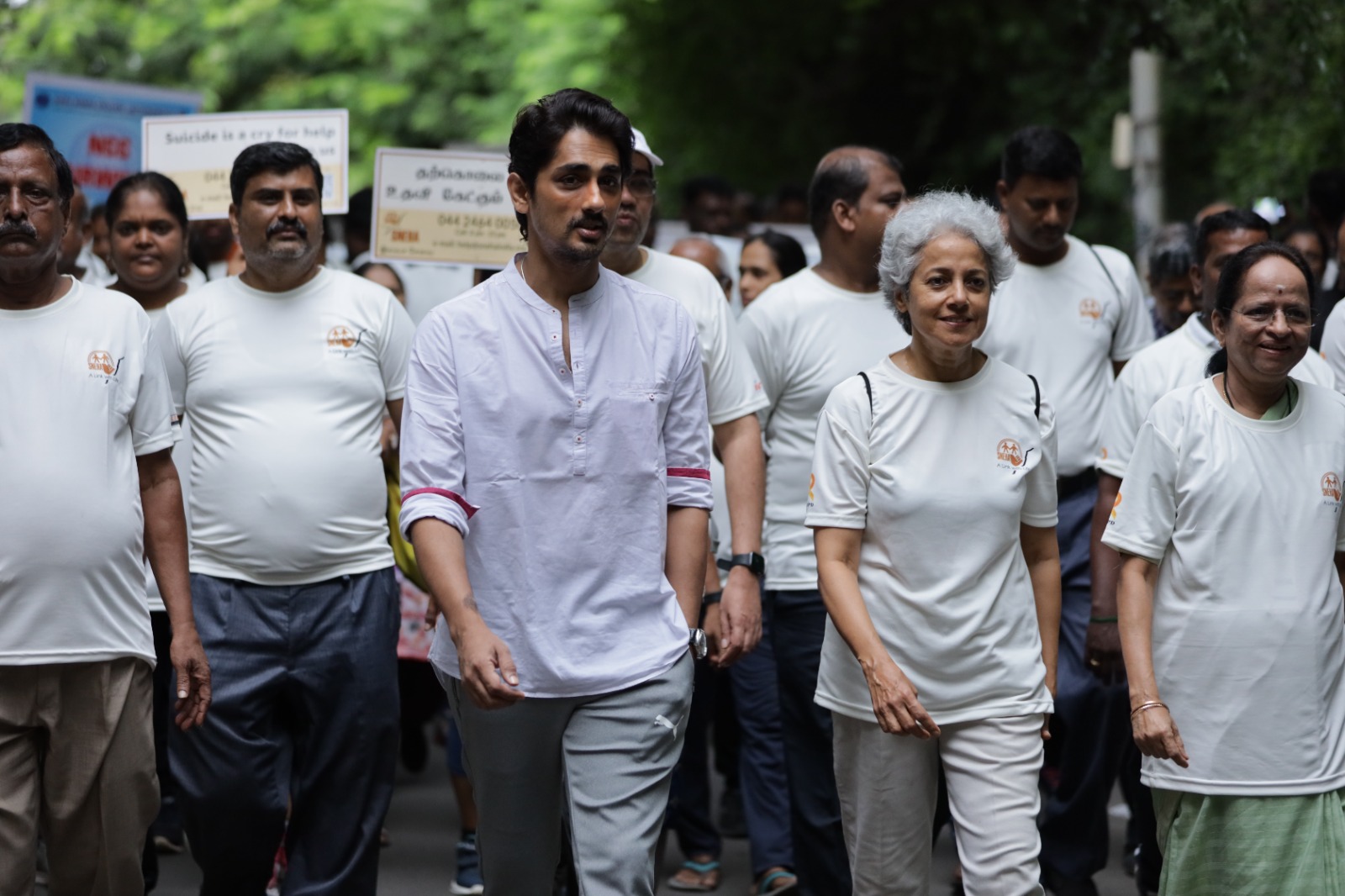
She is credited with the development of novel interventions that reduced suicide rates in different kinds of populations
Her second breakthrough came from her campaign towards suicide decriminalisation in India. Until 2017, the survivors of suicide attempts were charged with a criminal offence under Section 309 of the Indian Penal Code. Lakshmi sought to change this, citing that it was an old colonial law with no scientific grounding.
“I talked to Justice AP Shah Lakshmanan (former chairman of the 20th Law Commission of India) and said that this was an archaic law from the British and that many countries had already removed it.” It was a long fight that included several meetings and discussions with lawyers and state representatives, including mental-health advocate and bureaucrat Keshav Desiraju.
The Mental Healthcare Act was finally passed in 2017, effectively decriminalising attempted suicide, while offering additional rehabilitation opportunities, thanks to Lakshmi’s tenacity and indomitable spirit towards improving the state of mental health in the country.
Lakshmi’s foray into policymaking did not stop there. She is credited with the development of novel interventions that reduced suicide rates in different kinds of populations. One of her notable efforts was the implementation of pesticide-locker rooms as a means of restricting access to pesticides, which were the major cause of death by suicide in farmers. While working with Sri Lankan refugees, she developed a novel safety plan called the CASP (Contact and Safety Planning intervention), which details the way in which community members can be mobilised to aid in reducing suicidal behaviour in migrant refugees.
CASP has been selected by the United Nations Refugee Agency (UNHCR) to aid refugees across the world. Additionally, Lakshmi has also been at the forefront of combating media’s sensational portrayal of suicides, which often leads to copycat incidents. This included convincing the producers of Tamil soap operas to stop portraying self-immolation in their shows, which led to a decrease in self-immolation deaths in the state.
Apart from being a prolific spokesperson of legislating mental health-friendly laws and policies, Lakshmi has also made significant contributions to mental health research in India. She has spearheaded a number of research projects that now alleviate the problem that had initially stumped her — the lack of mental health research and data specific to Indian societal factors.
In recognition of her invaluable contributions to the field of mental health research, Lakshmi was awarded the Honorary Fellowship of Royal College of Psychiatrists in 2009 and the prestigious Fellowship of the Royal College of Physicians by the Royal College of Physicians in Edinburgh, UK, in 2017. She remains the first and only Indian psychiatrist to receive both these distinguished honours. Adding to her accolades, Lakshmi has also been recognised with the Ringel Service Award in Suicidology and the For the Sake of Honour Award by the Rotary Club, both testaments to the impact of her work in society.
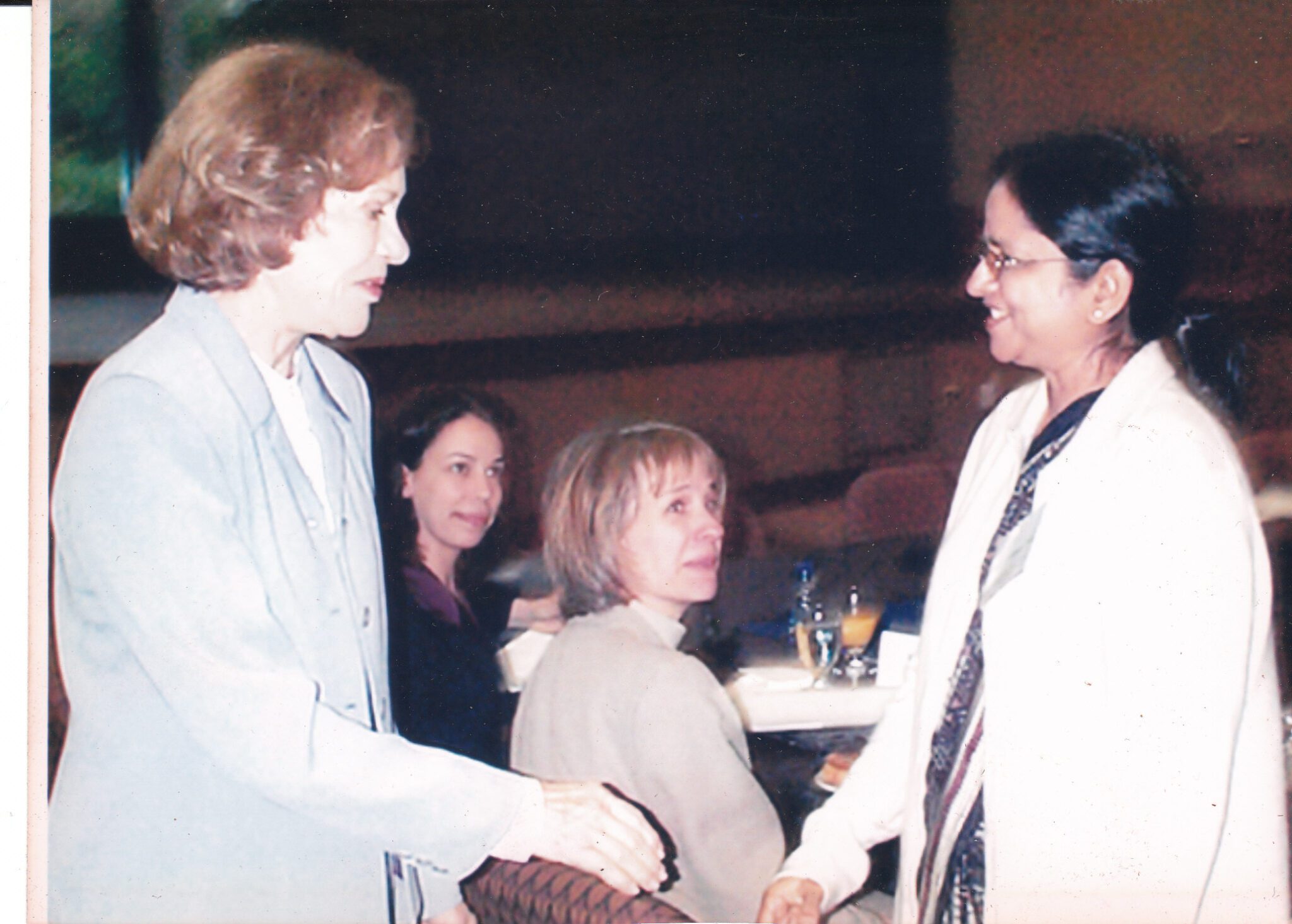
Asked if she faced any struggles being a woman in the field, she laughs gently and says, “If anything, I had an advantage because nobody took me seriously. So, I could go about on my own.”
Even though Lakshmi’s influence has led to a stark change in the way suicide prevention is championed and researched in India, especially in the last couple of decades, there is still much to be done. “In India, we lose 1.70 lakh people to suicide every year. We have overtaken China. Can you think of any other condition in which you lose so many people and nobody does anything about it?” Lakshmi muses not with a sigh but with a resigned determination towards her next mission — a national suicide prevention strategy – something that she had helped draft and publish but which has never been implemented.
Asked if she faced any struggles being a woman in the field, she laughs gently and says, “If anything, I had an advantage because nobody took me seriously. So, I could go about on my own. I was not a threat to anybody because this was a completely voluntary organisation. I was not treading on anybody’s domain, which allowed me to do whatever I wanted to do.”
Lakshmi’s legacy weaves a tale of a fierce woman leading a war from the forefront against suicides, battling societal taboo whilst sporting a determined smile.
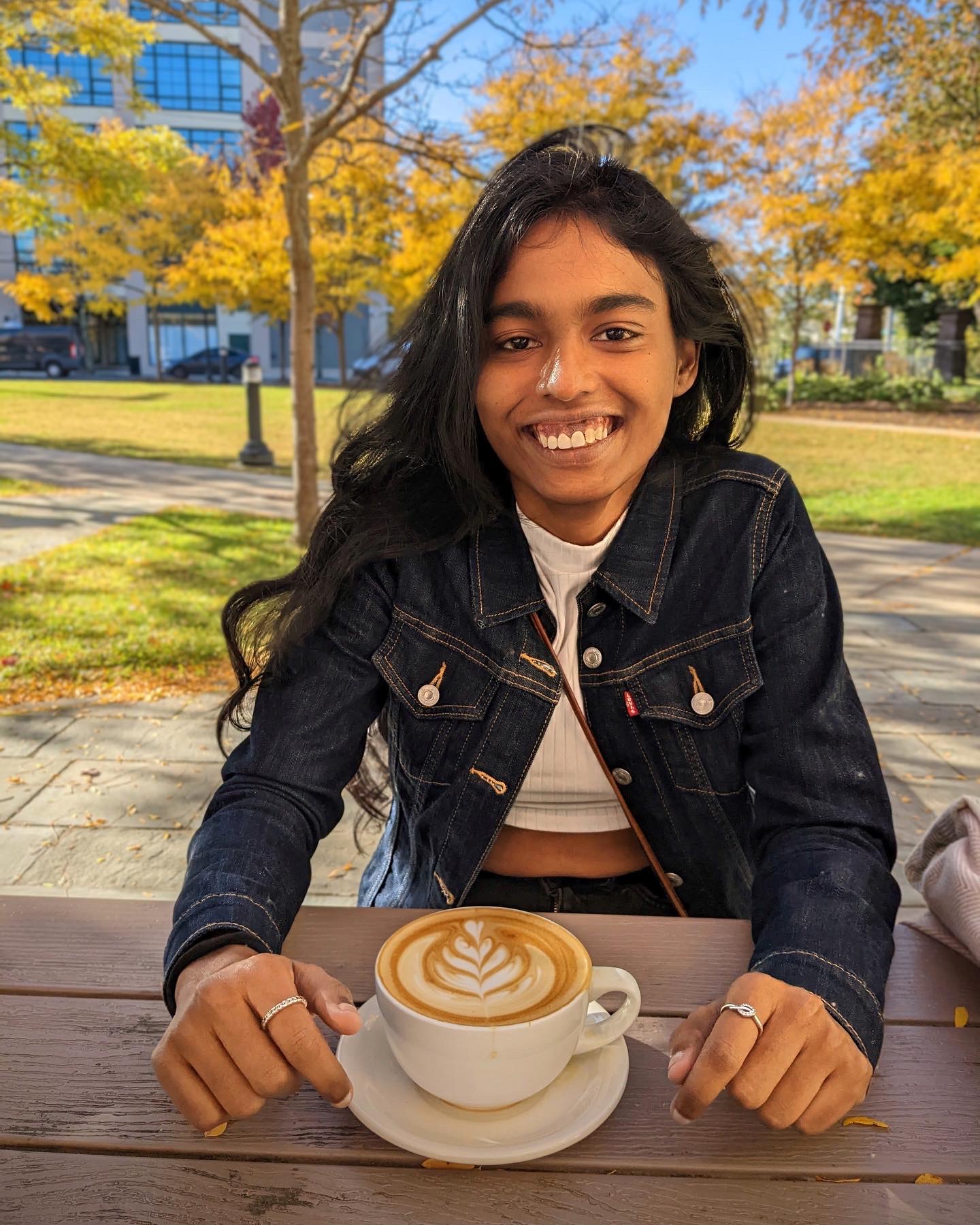
About the author
Rohini Murugan is a PhD student at Emory University studying cognitive evolution in primates. She did her B.Sc in Zoology in Chennai, followed by an MS in biology from IISc, Bengaluru. At IISc, where she interned in the communications office, she discovered her passion for science communication and has since written articles in Research Matters, TLoS, the Hindu and Dinamalar, both in English and Tamil. Apart from the time she spends wielding her pen to write articles and academic papers, she loves to read, crochet and stare at trees gushing over nature.

Add a Comment